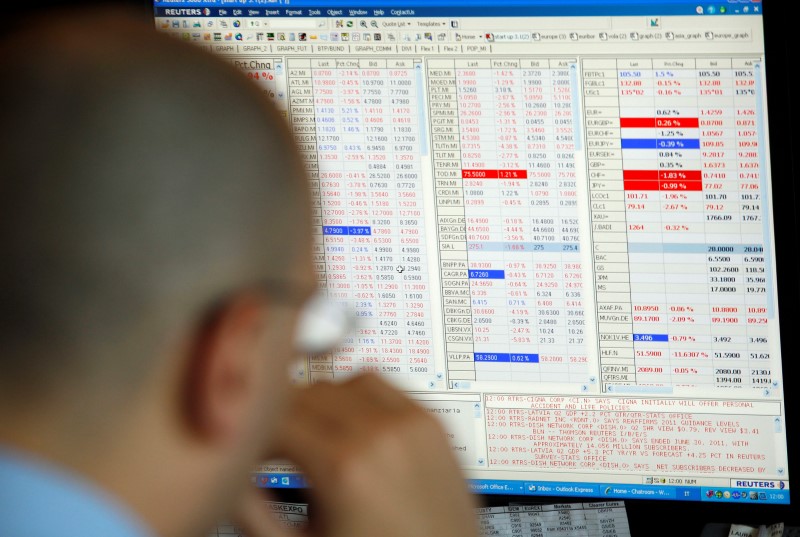This post was originally published on this site
https://i-invdn-com.akamaized.net/news/LYNXMPEA601E0_M.jpg
LONDON (Reuters) – A string of investment-grade companies rushed to take advantage of improved debt market sentiment to raise much-needed cash on Tuesday — and were met with overwhelming investor demand.
In a sign that Monday’s unprecedented stimulus package from the U.S. Federal Reserve had cleared at least some of the funding logjam, Sanofi (PA:SASY), Nestle, Diageo (LON:DGE), Bank of America (NYSE:BAC), Coca Cola European Partners and France’s BPCE all launched bonds.
All are rated single-A or higher.
French biopharmaceutical firm Sanofi generated nearly 10 billion euros of orders by mid-morning for a sale of five-year and 10-year bonds with a target size of 1.5 billion euros, said a lead manager.
Nestle’s six-year and 10-year issue drew even more interest, with nearly 13 billion euros of orders allowing the Swiss firm to double its target size to 2 billion euros.
“The Fed bazooka is a big game-changer, it helps very strong issuers come back to the market and reopen it,” said Jerome Legras, head of research at Axiom Alternative Investments.
“We all know there’s huge amounts of cash in the market, all of them are happy to put it to work on names like Nestle, especially when they are coming at levels investors never dreamed of a month ago.”
The Nestle bonds are set to price at 130 basis points over mid-swaps for the six-year paper and 150 bps over for the 10-year, which based on current Euribor levels suggests they will be priced to yield around 1.2% and 1.55% respectively.
Until very recently much of Nestle’s shorter-dated debt was trading firmly below zero, while its 10-year bonds became the first of their type to trade at negative yields last August.
A banker involved in some of Tuesday’s business said access to the market had always been there for such companies, rated comfortably within investment-grade, with the question being what yield levels corporate treasurers were willing to pay.
“The real question is when high-yield bond markets can reopen. We all know that’s the sector that’s been hit hardest by this crisis,” he said. “If the economy is hit as hard as we expect, I genuinely am not sure how that will play out without central bank support.”
Evidence of the economic devastation wreaked by the coronavirus pandemic mounted on Tuesday as surveys for March showed activity collapsing from Australia and Japan to Europe, with data from the United States expected to be just as dire.


